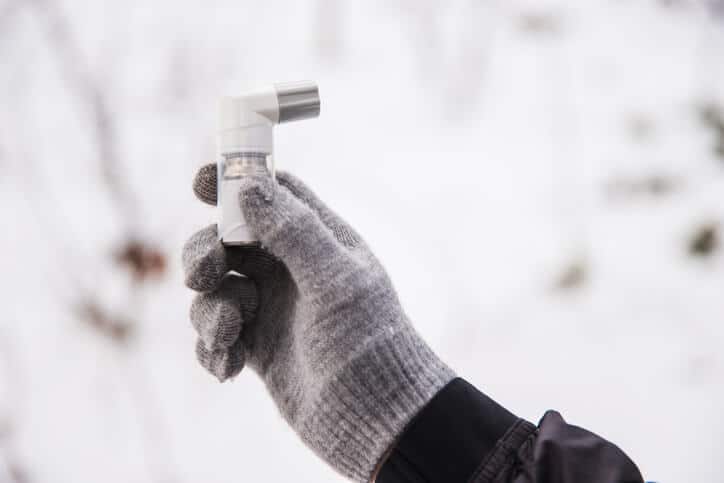With the Pittsburgh winter season right around the corner, it’s essential to understand how the cold weather can affect your allergies or asthma. Changes and fluctuations in temperature can inflame your airways and can also trigger asthma flares.
How is Asthma Triggered by Cold Air?
If you have asthma and breathe in cold air, it can cause the lung muscles inside to spasm while also trying to keep your airways open. This spasming irritates the lining of your airways which can lead to symptoms such as shortness of breath, wheezing, and coughing. This can trigger your asthma symptoms and can cause flare-ups, especially due to the dryness in the cold air.
Cold weather is difficult for those with allergies and asthma because the winter often has fluctuations in air pressure which can cause sinusitis and flare-ups, along with rainy and windy weather that can bring out mold spores.
Additionally, winter brings flu, colds, and viruses that can inflame your airways. These illnesses also thicken the bronchial tubes, making it harder to breathe, making symptoms worse, or causing asthma flare-ups.
Spending more time indoors in the winter season can expose you to more indoor allergens, respiratory viruses, and irritants that can result in flare-ups. However, there are several ways you can help your asthma during winter.
 Cold Weather Asthma Symptoms to Watch Out for
Cold Weather Asthma Symptoms to Watch Out for
The cold-weather symptoms you will notice are no different from your normal asthma symptoms brought on by other triggers. Some symptoms include:
- Wheezing
- Coughing
- Tightness in the chest
- Shortness of breath
How to Reduce Winter Asthma and Allergy Symptoms
Use HEPA Filters and Dust Mite Covers
Since you will be spending more time indoors, we recommend installing HEPA filters to help reduce dust mites and mold. If you have a dust mite allergy, use dust mite covers on your pillows and mattress.
Bundle Up Against the Cold
If you have allergies or asthma, it’s important to dress properly for the cold weather. Staying warm will help you reduce the risk of asthma flare-ups. We recommend wearing a warm coat, hat, gloves, and a scarf. You can use your scarf to cover your mouth or a mask. This will keep the air warm when you inhale and will reduce irritation to your airway.
Breathe Through Your Nose
While many people have a habit of breathing through their mouths, those with asthma should breathe through their noses in colder weather. This prevents a rush of cold air from hitting your lungs and triggering an asthma attack. When you breathe through your nose, the structures of your nose can humidify and warm the air before it reaches your lungs.
Work With Allergy & Clinical Immunology Associates, PC, to Create an Asthma Management Plan
Being prepared for winter is the best way to reduce asthma and allergy symptoms. We can work with you to evaluate your needs and help you create an asthma management plan for the winter.
To learn more about managing allergies and asthma in the winter, contact Allergy & Clinical Immunology Associates, PC, today to schedule an appointment.